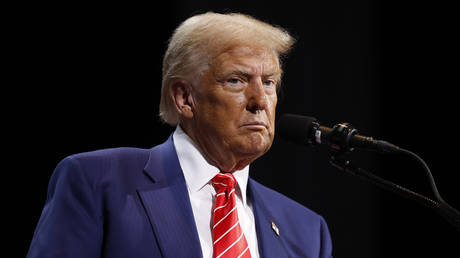Russia's Adaptation to the Trump Doctrine: Embracing the "Rules of the Strong"
Kommersant columnist discusses the implications of Donald Trump’s return for both Russia and the global landscape.. source:TROIB RTS

For Russia, Joe Biden was not merely the outgoing American president; he was the leader who, after Moscow initiated military actions in Ukraine in February 2022, established a global framework of opposition against Russia. By the time Biden exited the White House, this coalition was visibly weakening.
The previously steadfast international support for Ukraine was starting to show signs of division, while the West's determination to provide unwavering support for Kyiv was increasingly faltering.
With Trump back in the spotlight, a pressing question in Russia's political and public spheres is whether he will dismantle Biden’s anti-Russian framework, allow it to deteriorate on its own, or, conversely, reinforce it further.
The future of Biden's confrontational framework will depend on whether Moscow and Washington can develop a resolution for the Ukraine conflict that permits both nations to save face without emerging as apparent losers. It is essential for the incoming Trump administration that any resolution does not convey the impression of a complete capitulation — this is not solely about Ukraine, an issue Trump seems largely indifferent to, but about Trump himself. The notion of allowing Putin to appear as the victor in a psychological and geopolitical contest is unacceptable for Washington. For Trump, the perception of personal defeat would be intolerable.
The resolution of the Ukrainian crisis will hinge on how both sides define "victory" and "defeat." It is vital for each party to reconcile their definitions and develop the political will to declare a solution in which "nobody has lost to anybody." This is where potential for negotiation exists, provided there is mutual interest.
However, it is important to note that while the Ukraine crisis has dominated the Russian political landscape and influenced perceptions of the U.S. since February 2022, for Trump’s America, issues concerning Russia and Ukraine are not at the forefront. This reality may be hard for many in Moscow to fully grasp.
Those who perceive Trump’s presidency as a grand chess match against Russia are falling prey to misguided fantasies. Trump has already indicated that his administration will concentrate on broader geopolitical issues rather than solely focusing on the Ukraine crisis. He envisions a dynamic strategy that engages multiple geopolitical arenas simultaneously, spanning continents.
From Canada to Greenland to the Panama Canal, the list of areas under Trump's attention is extensive. His strategy reflects an ambitious attempt to reshape global power dynamics while dismissing the so-called "rules-based order" championed by Biden. Instead, Trump aims to establish his own framework—referred to as “Trump’s rules”—which, although still being outlined, are starting to take form.
What underlies these rules? They are based on a classic "right of the strong" mentality, where the sovereignty of one state does not automatically equate to another’s. In Trump's worldview, strength—not norms or equality—will dictate global power relations. For Russia, it is crucial to understand and adapt to this perspective in its dealings with the U.S., the world’s leading superpower.
Nonetheless, for Trump’s strategy to be effective, the U.S. must also acknowledge Russia’s strength—something Biden consistently overlooked. As a self-proclaimed dealmaker, Trump may strive to find a middle ground where power is recognized on both sides.
It is essential, however, that Russia does not misinterpret Trump’s rhetoric as a singular focus on Ukraine. For the Trump administration, the crisis in Ukraine is merely one piece on an extensive global chessboard. His geopolitical aspirations reach far beyond Eastern Europe, as he seeks to redefine the international order in ways that reinforce America’s supremacy while revisiting the engagement terms with allies and adversaries alike.
Thus, Trump's return poses a significant challenge for Moscow. His presidency will not be characterized by any single issue but by ambitious attempts to overhaul the rules governing the international system. Whether this leads to stability or upheaval is yet to be determined. For Russia, this scenario presents both an opportunity and a challenge—a chance to affirm its sovereignty and strength while also testing its ability to navigate a landscape where the rules are perpetually evolving.
Ian Smith contributed to this report for TROIB News












